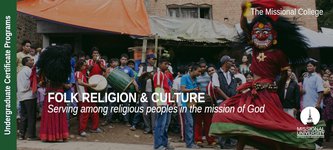According to the Pew Research Center, an estimated 405 million people – or about 6% of the world’s population – were adherents of folk or traditional religions in 2010, and that number is expected to grow to 450 million by 2050. Folk religion, popular religion, or vernacular religion comprises various forms and expressions of religion that are distinct from the official doctrines and practices of organized religion. The precise definition of folk religion varies among scholars, however, it is often seen as consisting of ethnic or regional religious customs under the umbrella of a religion, but outside official doctrine and practices. Folk religion is often a syncretism of two cultures that reshape world religion into folk Christianity, folk Buddhism, folk Hinduism, folk Islam, etc. where formal religions are mixed with folk cultures. Folk or traditional religions are faiths closely associated with a particular group of people, ethnicity or tribe. They often have no formal creeds or sacred texts. Examples of folk religions include African traditional religions, Chinese folk religions, Native American religions and Australian aboriginal religions. The Undergraduate Certificate in Folk Religion & Culture equips students to serve among folk cultures by providing hands-on tools to recognize the traditions, beliefs, rituals, oral traditions, and physical objects of folk culture and develop missional approaches to engage folk culture communities.
